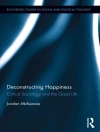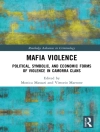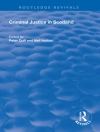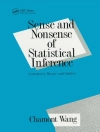John Briere and Catherine Scott′s
Principles of Trauma Therapy, Third Edition is both comprehensive in scope and highly practical in application. This best selling text provides a creative synthesis of cognitive-behavioral, relational, affect regulation, mindfulness, and psychopharmacologic approaches to the ‘real world’ treatment of acute and chronic posttraumatic states. Grounded in empirically-supported trauma treatment techniques and adapted to the complexities of actual clinical practice, this book is a hands-on resource for front-line clinicians, those in private practice, and graduate students of public mental health.
Зміст
Acknowledgments
Introduction to the Third Edition
Part I: Trauma, Effects, and Assessment
1. What Is Trauma?
Single Versus Multiple Traumatic Events In DSM-5
Major Types of Trauma
2. The Psychological Effects of Trauma (John Briere, Catherine Scott, & Janelle Jones)
What Makes Trauma Responses More Likely, More Intense, or More Complicated?
Types Of Posttraumatic Response
Trauma- and Stressor-related Disorders
Disorders and Symptoms Typically Related to Trauma Exposure
Generic Symptoms Sometimes Associated with Trauma Exposure
Trauma Syndromes in Non-Western Cultures
Complex Posttraumatic Presentations
3. Assessing Trauma and Posttraumatic Outcomes (John Briere, Erin Eadie, & Catherine Scott)
Assessment In The Clinical Interview
Assessing the Sociocultural Environment
Assessing Current and Past Exposure to Discrimination and Maltreatment (SDM)
Evaluating the Effects of Trauma
Structured Interviews
Psychological Tests
Trauma-Specific Tests
Recommendations for Assessment through Telehealth Platforms
Part II: Clinical Interventions
4. Central Issues in Trauma Treatment
A Basic Philosophy of Trauma, Recovery, and Growth
Central Treatment Principles
5. Psychoeducation
Handouts
Books
Verbal Information During Therapy
General Focus
Constraints
6. Distress Reduction and Emotional Regulation Training
Dealing with Acute Intrusion
Intervening in Chronic Emotional Dysregulation
Meditation and Yoga
7. Cognitive Interventions
Cognitive processing
Developing a Coherent Narrative
Cognitive Changes Arising from Non-overwhelming Emotional Activation
Cognitive Interventions and Insight
Addressing the Cognitive Impacts of Social Maltreatment
8. Trigger Management
Steps of Trigger Management
Intervening in Triggers and Triggered States
Intervening in DRBs
9. Emotional Processing
Reexperiencing as Trauma Processing
The Components of Trauma Processing
Written Homework
Written Exposure Therapy (WET)
Eye Movement Desensitization and Reprocessing (EMDR; Shapiro, 2018)
The Therapeutic Window
Emotional Processing and Substance Use
Sequence and Session-Level Structure of Memory Processing
10. Increasing Identity and Relational Functioning
Identity Problems
Relational Disturbance
11. Mindfulness in Trauma Treatment
What Is Mindfulness?
Research
The Mindful Therapist
12. Treating the Effects of Acute Trauma (Sarah Stoycos, Heidi Ardern, John Briere, & Catherine Scott)
Research on Acute Traumatic Stress
Intervening in Acute Posttraumatic Stress: An Overview
Central Components of Treatment for Acute Trauma
Special Issue: Trauma Work in Acute Medical Contexts
13. Remote Treatment of Trauma: Teletherapy Principles
Acceptable Teletherapy Platforms
Teletherapy Guidance for Major Professional Groups
Articles and Guides on Teletherapy Practice
Teletherapy Principles
Part III: Psychobiology and Psychopharmacology of Trauma
14. Psychobiology of Posttraumatic Stress (Catherine Scott, John Briere, & Janelle Jones)
The Hypothalamic-Pituitary-Adrenal (HPA) Axis and the Adrenergic System
The Endocannabinoid (e CB) System
Other Biological Correlates of PTSD
Findings From Neuroimaging Studies
Integrating Biological Models with Psychological Trauma Theory
15. Psychopharmacology of Trauma (Catherine Scott, Janelle Jones, & John Briere)
Psychotherapy and Psychopharmacology
Medications for PTSD
Special Topic: Repurposed Drugs and Drug-assisted Psychotherapy
16. Conclusions
Appendix 1: Trauma Exposure Review (TER)
Appendix 2: Social Discrimination and Maltreatment Scale, Short Form (SDMS-SF)
Appendix 3: Mindfulness-based Breath Training (MBBT) Handout
Appendix 4: A Brief Urge/Emotion Surfing Exercise
Appendix 5: Re GAIN handout
References
Index
About the Authors
Про автора
Catherine Scott, MD, is Assistant Clinical Professor of Psychiatry and the Behavioral Sciences at the Keck School of Medicine of the University of Southern California. Her academic background includes Harvard College, Columbia University College of Physicians and Surgeons, and psychiatric residency training at both Cornell and USC. Previously, Dr. Scott served as Medical Director of the Psychological Trauma Program at Los Angeles County + USC Medical Center, and the Associate Medical Director of the Psychiatric Emergency Service at Los Angeles County + USC Medical Center. In that capacity she taught and supervised resident physicians and medical students in the assessment and treatment of trauma-related disorders arising from sexual and physical violence, torture, child abuse, and other forms of interpersonal violence. She continues to practice as well as teach residents at USC, and serves as an expert witness in the areas of trauma and posttraumatic stress. Her clinical and research interests include women’s issues, treatment of adult survivors of child abuse, human rights, and the remediation of sexual violence and its effects.












